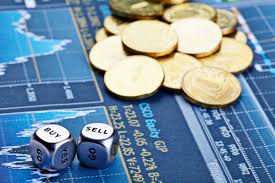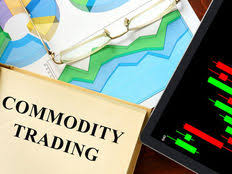Grandma's old adage
,"Don't put all your eggs in one basket", warns against trusting any sole source to protect all your stuff. Such conventional wisdom is definitely a necessary foundation for any savvy investor.
A profitable portfolio should have several streams of income. Included are various commodities that form equitable assets that can be easily liquidated. Learning how and when to trade (buy or sell) them is essential.
A commodity market is a market that trades in primary economic sector rather than manufactured products. Soft commodities are agricultural products such as wheat, coffee, cocoa, fruit and sugar. Hard commodities are mined, such as gold and oil.
Typically, as in any market, traders sustain individual success commensurate to their personal knowledge, training, and experience. In the specific related field of hard commodities ‘futures’ are available. A futures contract is an agreement to buy or sell, in the future, a specific quantity of a commodity at a specific price. Buyers use such contracts to avoid the risks associated with the price fluctuations of a futures' underlying product or raw material. Futures contracts are the oldest way of investing in commodities.


Futures traders are traditionally placed in one of two groups. ‘Hedgers’, hold an interest in the underlying asset (which could include intangibles such as indexes or interest rates). They are seeking to ‘hedge’ out the risk of price changes. On the opposite side are ‘Speculators’, who seek to make a profit by predicting market moves.
Trading commodities online is a relatively simple process, but it is not an activity that you should pursue without doing lots of homework. The traditional method of calling a commodity broker to place orders and waiting for a call back to give you a filled order price is less efficient than online trading. Therefore, if you want to trade commodities online, there are some important factors to keep in mind.
As with any new venture, you must do your homework and understand the ins and outs of the markets you decide to trade. When it comes to commodities, there are so many important factors to consider. Futures and options markets are derivatives of the actual market for the physical delivery of the commodity in question. Therefore, it is important to learn all you can about the underlying supply and demand fundamentals for a particular asset. There is a wealth of information available for free from the commodity exchanges as well as from a variety of trade organizations and government agencies that supply commodity data free of charge.


At the same time, the futures and options markets in commodities are laden with risk. There is a tremendous amount of leverage in these instruments. While the opportunity exists to make huge gains, where there is the potential for rewards there are also commensurate risks. Therefore, exercise caution in the commodity markets, do your homework and approach these volatile instruments with care and trepidation.
While fortunes can come from commodities trading, the potential for losses is just as great. Online trading has increased the speed and efficiency of execution. Remember to approach online trading as a business with discipline and be precise. Mistakes can be very expensive so try to keep trading to a minimum. The most successful traders are masters of efficiency. Mastering online trading requires a level of expertise that comes from hard work and study. Most online trading platforms have many resources for their customers. Make sure you use all of the information that is at your disposal.
©2004 ReVision Enterprises All Rights Reserved